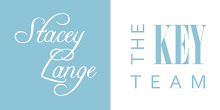By JENNIFER LOVEN - Associated Press Writer
President Bush on Wednesday signed a massive housing bill intended to provide mortgage relief for 400,000 struggling homeowners and stabilize financial markets.
Bush signed the bill without any fanfare or signing ceremony, affixing his signature to the measure he once threatened to veto, in the Oval Office in the early morning hours. He was surrounded by top administration officials, including Treasury Secretary Henry Paulson and Housing Secretary Steve Preston.
"We look forward to put in place new authorities to improve confidence and stability in markets," White House spokesman Tony Fratto said. He said that the Federal Housing Administration would begin right away to implement new policies "intended to keep more deserving American families in their homes."
The measure, regarded as the most significant housing legislation in decades, lets homeowners who cannot afford their payments refinance into more affordable government-backed loans rather than losing their homes.
It offers a temporary financial lifeline to troubled mortgage companies Fannie Mae and Freddie Mac and tightens controls over the two government-sponsored businesses.
The House passed the bill a week ago; the Senate voted Saturday to send it to the president.
Bush didn't like the version emerging from Congress, and initially said he would veto it, particularly over a provision containing $3.9 billion in neighborhood grants. He contended the money would benefit lenders who helped cause the mortgage meltdown, encouraging them to foreclose rather than work with borrowers.
But he withdrew that threat early last week, saying hurting homeowners could not wait - and even blaming the Democratic Congress' delays in action for forcing an imperfect solution.
Meanwhile, many Republicans, particularly those from areas hit hardest by housing woes, were eager to get behind a housing rescue as they looked ahead to tough re-election contests.
Paulson's request for the emergency power to rescue Fannie Mae and Freddie Mac helped push through the measure. So did the creation of a regulator with stronger reins on the government-sponsored companies, as Republicans long have sought.
Democrats won cherished priorities in the bargain: the aid for homeowners, a permanent affordable housing fund financed by Fannie Mae and Freddie Mac, and the neighborhood grants.
The bill takes several approaches to curing the ailing housing market.
It aims to spare an estimated 400,000 debt-strapped homeowners, many of whom owe more their houses are worth, from foreclosure by allowing them to get more affordable mortgages backed by the Federal Housing Administration.
The FHA could insure $300 billion in such mortgages, which would be available to homeowners who showed they could afford a new loan. Banks would first have to agree to take a large loss on the existing loans in exchange for avoiding an often-costly foreclosure.
The plan also is designed to relieve a broader credit crunch that has taken hold because of rising defaults and falling home values. To free up safer and more affordable mortgage credit, the bill permanently would increase to $625,000 the size of home loans that Fannie Mae and Freddie Mac can buy and the FHA can insure. They also could buy and back mortgages 15 percent higher than the median home price in certain areas.
It goes far beyond addressing the current crisis, however.
The legislation overhauls the Depression-era FHA. It requires lenders to show how high a borrower's payment could get under the terms of his mortgage. It provides $180 million in pre-foreclosure counseling for struggling homeowners.
The Treasury Department gains unlimited power, until the end of 2009, to lend money to Fannie Mae and Freddie Mac or buy their stock should they need it. The Federal Reserve takes on a new "consultative" role overseeing the companies.
The measure includes $15 billion in tax cuts, including a significant expansion of the low-income housing tax credit and a credit of up to $7,500 for first-time home buyers for houses purchased between April 9, 2008, and July 1, 2009.
Democratic leaders, recognizing that the measure could be one of the last items to become law during what's left of their abbreviated election-year schedule, tacked on an $800 billion increase, to $10.6 trillion, in the statutory limit on the national debt.
Conservative Republicans were vehemently opposed to the bill, particularly the help for Fannie Mae and Freddie Mac. Critics charge the companies enjoy lavish profits in good times and wield their outsized political clout to resist regulation while depending on the government to bail them out should they falter.
Wednesday, July 30, 2008
Bush signs housing bill to provide mortgage relief
Labels:
Economy,
Mortgage,
News Articles,
NW Housing Market






